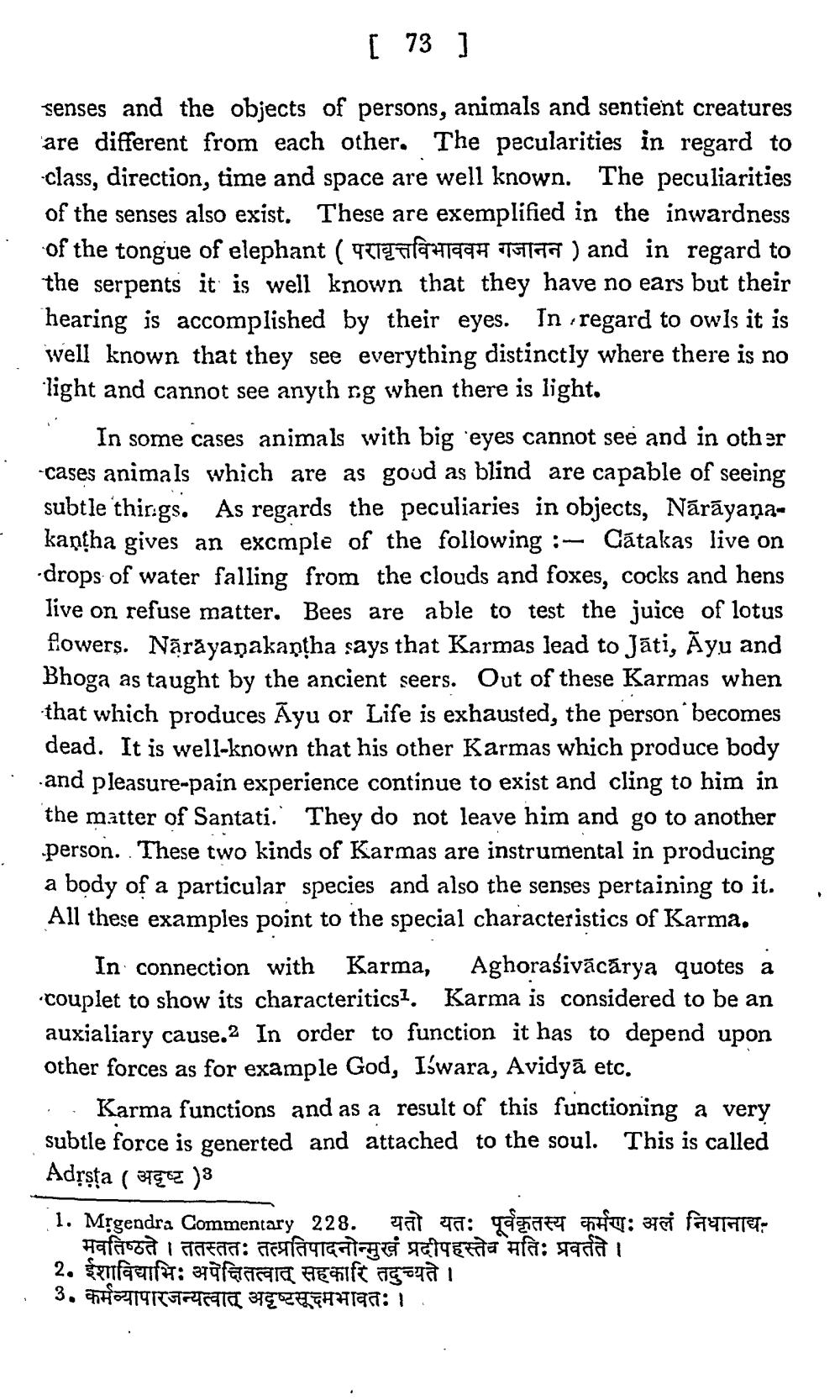________________
[ 73 ]
senses and the objects of persons, animals and sentient creatures are different from each other. The pecularities in regard to class, direction, time and space are well known. The peculiarities of the senses also exist. These are exemplified in the inwardness of the tongue of elephant ( 927 Tilah199H TITTAT ) and in regard to the serpents it is well known that they have no ears but their hearing is accomplished by their eyes. In regard to owls it is well known that they see everything distinctly where there is no light and cannot see anych rg when there is light.
In some cases animals with big 'eyes cannot see and in other -cases animals which are as good as blind are capable of seeing subtle thir:gs. As regards the peculiaries in objects, Nārāyaṇakantha gives an excmple of the following :- Cātakas live on drops of water falling from the clouds and foxes, cocks and hens live on refuse matter. Bees are able to test the juice of lotus flowers. Nārāyanakantha says that Karmas lead to Jāti, Āyu and Bhoga as taught by the ancient seers. Out of these Karmas when that which produces Ayu or Life is exhausted, the person becomes dead. It is well-known that his other Karmas which produce body and pleasure-pain experience continue to exist and cling to him in the matter of Santati. They do not leave him and go to another person. These two kinds of Karmas are instrumental in producing a body of a particular species and also the senses pertaining to it. All these examples point to the special characteristics of Karma.
In connection with Karma, Aghoraśivācārya quotes a •couplet to show its characteritics?. Karma is considered to be an auxialiary cause.2 In order to function it has to depend upon other forces as for example God, Iswara, Avidyā etc. ... Karma functions and as a result of this functioning a very subtle force is generted and attached to the soul. This is called Adrsta ( Brçez ) 1. Mțgendra Commentary 228. gat ga: gamatt stu: 37 FAUTE
मवतिष्ठते । ततस्ततः तत्प्रतिपादनोन्मुखं प्रदीपहस्तेव मतिः प्रवर्तते । 2. ईशाविद्याभिः अपेक्षितत्वात् सहकारि तदुच्यते । 3. कर्मव्यापारजन्यत्वात् अदृष्टसूक्ष्मभावतः।




